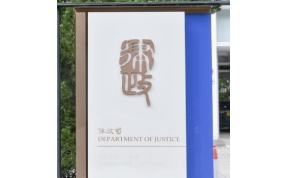|
Constant vigilance is the price of freedom,” we are told, though apparently this remark did not originate with the American founding father, hero, slave owner and rapist Thomas Jefferson. Still, this orphan quotation is highly spoken of, so in that spirit I would like to note that the Hong Kong Court of Appeal has just come up with a really bad idea.
The matter before their Lordships concerned two cases in which the presiding judge had ruled that the defence had no case to answer and acquitted the defendant off his or her own bat, as it were.
The appeal judges were asked by the Department of Justice to assess the correctness of these moves. This was not in the strict sense of the word an appeal because the verdicts were final.
The successful defendants had in fact left the territory, which the judges seemed to feel was rather inconsiderate of them. But the accused were all from distant countries (both cases concerned drug smuggling) and one imagines that two years in remand custody in Hong Kong would cause in most people an acute case of homesickness.
Their lordships’ judgement is neither easy reading nor brief. Readers who survive the experience will have had a lengthy tour of the law on “no case to answer” in several jurisdictions and some decided local cases. Their conclusions may be summarised as: the two judges were wrong and the law is reasonably clear, but some recent statements of it were, no doubt unintentionally, ambiguous and confusing. Error was understandable.
The way this works is that in criminal cases the proceedings start with the presentation of the case for the prosecution. When the prosecution has done its stuff the lawyer for the defence may ask the judge or magistrate to rule that there is “no case to answer”. In other words the prosecution’s case is so weak that the defendant should be acquitted without further ado.
Read full piece
Hong Kong judges are proposing another nudge at the scales of justice




